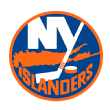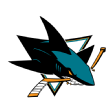With the trade deadline done and the general managers meetings wrapped up, one GM joked last week that his load was suddenly much lighter.
This is the time of year where the GMs of contending teams feel a bit powerless. Their work is done, and now they just wait to see how it all plays out.
General managers for lottery teams? Well, they can focus completely on expansion draft preparation. Part of that is deciding what to do with players on expiring contracts, with the expansion draft adding a new wrinkle that any unrestricted free agent signed before the draft is another player that team has to protect.
There are some tough choices to make, here’s a look at the toughest call for each of the 30 NHL teams:
This was a very quiet addition for GM Bob Murray that’s turning out to be a good one. Bernier has played great lately, improving to 5-0-1 with a .958 save percentage in his past six starts. He’s now 15-7-3 on the season, with his save percentage up to .918. Along the way, he’s pricing his way out of Anaheim, where the Ducks have a number of tough decisions to make this offseason.
Verdict: Let him walk. He’s been great lately, but he will probably want a shot at more playing time and a salary that goes with it.
That Vrbata is still with the Coyotes was one of the trade deadline’s biggest surprises, but the Coyotes weren’t willing to just give him away. They like him, and he likes playing in Arizona, where he’s put up 51 points in 71 games. He’s a proven offensive producer, but he’s also getting to an age where production could start to decline fairly steeply.
Verdict: Bring him back on another one-year deal if he’s willing. But maybe not another one with playoff bonuses that make him harder to move at the trade deadline.
The Bruins don’t really have any unrestricted free agents of note that are going to make or break GM Don Sweeney's summer, but Pastrnak is an interesting case. He’s a restricted free agent who is coming off his entry-level deal and in line for a monster raise. Before this season, he was a bridge contract candidate, but after his 31 goals in 64 games, the Bruins have to look hard at a long-term deal.
Verdict: Skip the bridge deal and go long-term with Pastrnak, using Filip Forsberg's six-year deal ($6 million in average annual value) as the comparable number.
D Cody Franson and Dmitry Kulikov
Injuries have slowed Kulikov in Buffalo this season -- enough that it’s almost hard to remember just how good he was for Florida last season in the playoffs. He’s been a major disappointment, and both he and fellow free agent defenseman Cody Franson are playing on expiring contracts. The Sabres' defense needs a major upgrade if Buffalo is going to make the next step to become a contending team.
Verdict: Let them both walk and use the $7 million in additional cap space to pursue an improvement to the top four.
For a good portion of the season, Elliott looked like he would make this decision easy on GM Brad Treliving, waiting until December to post a month with a save percentage over .900. He’s in the final year of a contract that came with a very reasonable $2.5 million annual cap hit. The next one will likely be a bit higher. In 16 games since the All-Star break, Elliott is 13-1-1 with a .936 save percentage, and has made the offseason goalie game plan a little more complicated in Calgary.
Verdict: Sign him for three years or fewer. The Flames have good young goaltending coming up the prospect pipeline, and Elliott is the perfect veteran to break them in, but only if the term is reasonable.
The Hurricanes' key veterans are locked up long-term, and GM Ron Francis doesn’t have any important unrestricted free agents to deal with this summer. In fact, they really don’t have any major decisions to make on contracts this offseason -- which is a little unfortunate for them because that means both goalies are already signed.
Teravainen is a restricted free agent, and his name started to circulate once again in the trade rumor mill, which isn’t necessarily a great thing for a 22-year-old.
Verdict: Teravainen still hasn’t lived up to the big expectations when he was considered the biggest steal in the first round of the 2012 draft after Chicago grabbed him with No. 18 overall pick. He’s a nice candidate for a one- or two-year deal to keep him motivated going forward.
Scott Darling is the Blackhawks' most prominent unrestricted free agent, along with veteran defensemen Johnny Oduya and Brian Campbell. Darling has earned an opportunity to be a No. 1 goalie, something he’ll surely get on the free agent market. The Stars would be a good bet to be among the top pursuers of Darling.
As for Panik, his next deal will be a fascinating one. The Blackhawks have very little wiggle room under the salary cap, but they can’t expect to get another one-year contract out of Panik.
Verdict: The term has to be short, like two years, and the dollar amount low enough to fit into the Blackhawks' salary structure. But if Panik is willing to fit into those parameters, he’ll be a nice player for the Blackhawks.
The future of the Avalanche won’t hinge on whether or not they retain Bourque. But he’s one of the of the few free agents on the Avalanche roster -- a reminder of how locked in they are to their core -- and his 11 goals so far this season are the most he has scored since 2011-12. He’s one of the few Avalanche exceeding expectations this season.
Verdict: Let him walk. The Avalanche have bigger fish to fry than to spend money on retaining Rene Bourque.
With 18 goals this season, Gagner has equaled a career high for a single season, and he’s a good candidate to exceed 20 goals for the first time in his career. His skill set has been maximized by coach John Tortorella, who has used him a bit as a power-play specialist. He’s playing 13:31 per game, the lowest average ice time of his career, and yet his offensive production is at its highest. Eight of his 18 goals have come on the power play.
Verdict: Let him walk. He’s been good for the Blue Jackets, but they have young players coming who can fill his spot in the lineup for cheaper than the raise he’s earned this season.
The Stars have a number of veteran forwards who are playing on expiring contracts, including Patrick Sharp, Jiri Hudler and Ales Hemsky. At this point in the development of the Stars, whatever GM Jim Nill decides to do with those players won't decide the fate of the team moving forward. But in Faksa, the Stars have an interesting young center who they could get locked up at a reasonable price as he hits restricted free agency. This is a negotiation to watch for the Stars.
Verdict: He’s a 6-foot-3 center who is responsible on both ends of the ice. He’s still just 23 years old. I’d look at a long-term deal in the way that teams have aggressively signed their young defensemen to long-term deals. He’ll be an important part of this team when they get back on track.
F Thomas Vanek (Panthers)
Red Wings GM Ken Holland cleared out his unrestricted free agents at the trade deadline, so we’re cheating here a bit. But Vanek and the Red Wings both appeared genuinely interested in having the veteran winger in Detroit next season and beyond.
It’s the "beyond" part that gets a little dicey. Vanek is an elite offensive player who was used just about perfectly by coach Jeff Blashill, but he isn’t necessarily a guy you want to pay for too many more seasons now that he's 33 years old.
Verdict: Bring him back to Detroit if he’ll sign on the cheap for three or fewer seasons. If not, thank him for the 48 games served and part ways.
Russell has been a nice addition to the Oilers' blue line this season, adding elements to that defense and dressing room Edmonton really needed. The Oilers don’t necessarily want to rush to sign him though, because that means they’ll have another defenseman to protect in the expansion draft. It’s worth noting here that the Oilers are required to protect Andrej Sekera because of his no-movement clause, so Edmonton GM Peter Chiarelli has to be careful how he navigates here.
Verdict: Wait until after the expansion draft and sign him to a deal in the four-year range if possible. The Oilers have to be careful because they have future monster contracts coming down the road for Connor McDavid and, to a lesser extent, Leon Draisaitl. They don’t want to tie up too much money on non-core players.
Jagr is a physical specimen who has climbed up the charts as one of the greatest players of all time. But he’s slowed down this season. You’ve seen it on the ice and in his offensive production, where he’s averaging just 0.56 points per game, the lowest rate of his career. He’s earned the right to make his own call on retirement, but at some point it will be the end of the line for one of the greatest.
Verdict: He’s said he wants to play until he’s 50, and if Jagr wants to come back on a one-year contract at a number considerably lower than the $4 million he’s earning this year, the Panthers should give it a shot.
The Kings' salary cap issues forced them to sign him to a bridge deal on the cheap, one that averaged $3.25 million per season. Now, he’s in for a huge raise as one of the few players in the lineup consistently producing offense. They desperately miss him when he’s not around.
The problem is that the Kings' cap situation hasn’t gotten any better, with the salary cap stagnating for next season and not expected to get higher. GM Dean Lombardi will need to work some magic to clear space for Toffoli’s raise.
Verdict: The decision to sign him to a bridge contract will probably cost the Kings money in the long run, since this next deal will be a big one. The Kings have to find a way to get Dustin Brown or Marian Gaborik off the books so they can find room for a nice, long-term deal for Toffoli.
Granlund has been a great story for the Wild this season, but now comes a tough decision as he hits restricted free agency. His decision to sign a two-year deal worth $6 million will come with a big payoff, coming off a breakout season in which he has scored a career-high 24 goals to go with 65 points so far. He’s also shooting 15.4 percent, so his offensive numbers are a bit inflated and may be tough to repeat regularly.
Verdict: This is a tough one because he’s earned a long-term deal. Even at his young age, you’re probably signing a contract where the end of it is paying for diminishing returns, and the Wild roster already has too many of those. I’d try to convince him to do something in the four- or five-year range so you’re not committed too long, and he might be able to get another big contract if this is how he will continue to produce at the NHL level.
Radulov denied he was looking for eight years on a new deal, but why wouldn’t his agent shoot high, considering how well Radulov has played for the Canadiens? He has 15 goals in his return to the NHL and has played with fire and a competitive edge that few outside of Nashville realized he had. This was a signing met with criticism, but it has paid off for GM Marc Bergevin.
Verdict: Give him a new deal. Just not an eight-year deal. He’s 30 years old, so Montreal has to be careful here. In a perfect world, they’re not doing anything that commits him to Montreal after he’s 35 years old.
Fisher is coming off a two-year contract that comes with an annual cap hit of $4.4 million. As the Predators have skewed younger the past couple of years, he’s been an important constant in the leadership group. This is the third consecutive year that his ice time has declined, which is perfectly reasonable for a 36-year-old center. He’s still been productive with his 17 goals this season, a nice bounce-back from last season’s 13-goal effort in which he finished with just 23 points.
Verdict: Another two-year deal similar to his current one would work out just fine for both sides.
The Devils are one of the teams that traded away their expiring veteran contracts, leaving them only with restricted free agents to debate. This season, Severson saw his ice time return to more than 20 minutes per game, and he put up 30 points for the first time in his career. He’s a good possession driver, and the Devils may want to consider a long-term deal if it comes with a discount to keep costs down for a budget-focused franchise.
Verdict: He’s coming off his entry-level contract and still establishing himself in the NHL, so I’d go with a two-year bridge contract to help figure out exactly what the Devils have in Severson.
This offseason is about one player and one player only for the Islanders, and that’s their captain. He has one year remaining on his contract after this season -- so we're cheating a little on this entry, too -- and the two sides can sign a contract extension on July 1. Tavares has said all the right things publicly as captain; he wants to return and be a part of the organization.
Money isn’t going to be the issue. If Tavares is going to spend the next eight years with the Islanders, he has to be convinced he can win a Stanley Cup in that window. It would be perfectly understandable if he’s skeptical about that at this point.
Verdict: Offer him the house on an eight-year deal. Include him on all decisions regarding the front office and coaching staff. Do whatever it takes to keep him, because if he leaves, the Islanders are starting over. Also, if he’s not signed by mid-July, the Islanders have to trade him.
There aren’t any prominent unrestricted free agents coming off the books, and unlike previous offseasons, the Rangers really don’t have much heavy lifting to do in restricted free agency besides a new deal for Mika Zibanejad.
Smith is the wild card. If he proves to be a good fit this spring, he will bring depth and athleticism to the back end for the Rangers.
Verdict: Let him walk. There are already expansion protection issues on defense for the Rangers, unless they can find a way to convince Dan Girardi to waive his no-movement clause for Vegas.
Condon held down the fort in goal while Craig Anderson took time off to be with his family, and he is a big reason the Senators have been one of the NHL’s most surprising teams. He has an 18-12-6 record and .914 save percentage while earning just $575,000. Anderson has one year remaining on a contract that has an annual cap hit of $4.2 million.
Verdict: Condon has been a great story this season, but we’re still talking about a goalie with a .908 save percentage in 93 career games played. Ottawa has to be careful not to overpay, but if he’s willing to come back on a reasonable two-year deal, he’s earned it.
The Flyers tipped their hand to how they will approach their goalie situation by signing Michal Neuvirth to a contract extension at the trade deadline. This might have been done mostly to have a goalie to expose for the expansion draft and make sure Anthony Stolarz is safe.
Mason hasn’t been particularly good this season, with a .905 save percentage bringing back memories of his final seasons with the Blue Jackets. But even with the rough campaign, his five-season save percentage in Philadelphia is an above-average .918.
Verdict: Let him walk. It’s time for an upgrade in goal for a Flyers team that needs to take a step forward next season.
We don’t necessarily talk about the Penguins in the same terms as the Capitals when it comes to the roster potentially looking different next season, but there will be changes. For one, GM Jim Rutherford has to figure out what to do with restricted free agent Justin Schultz, whose huge season means he will be making much more than he is now.
And Bonino, a key driver of the Penguins' Stanley Cup success last spring, is playing on the last year of a deal that costs $1.9 million per season of cap space for the Penguins. Chris Kunitz will come off the books, but that might not be enough to keep everyone together.
Verdict: Let him walk. These are the tough decisions general managers of great teams have to make, but the Penguins should follow the Blackhawks model and pay to keep only the core players.
Joe Thornton is an unrestricted free agent after this season, but that’s not a tough decision for the Sharks. He’s earned a three-year deal to end his career with San Jose and should get it, even if it makes more sense to do it after the expansion draft.
Marleau is the trickier situation. At one point he wanted out, but GM Doug Wilson had limited options on where to trade him and ended up keeping him. The two sides have mended fences, and it would be nice to see him end his career in San Jose.
Verdict: Keep him, but only at the right price. Marleau’s days of making nearly $7 million per season are in the past. He’s settling into a guy that finishes with a goal total in the low 20s, and a series of one-year deals to finish his career in San Jose would be ideal for the Sharks.
GM Doug Armstrong’s toughest decision was already made when he shipped pending unrestricted free-agent defenseman Kevin Shattenkirk to the Capitals at the deadline. This team is otherwise well set up for next season.
Parayko is a restricted free agent, and he has been good again on defense for the Blues. He’s part of the reason Shattenkirk became expendable in the first place. He’s earned a long-term deal, if there’s one to be done.
Verdict: He’s coming off his entry-level contract, but he’s a right-handed shot who is 6-foot-6 and has a big shot. You want him around. A seven-year deal similar to John Klingberg's ($4.25 million annual average value) would be nice for the Blues.
F Tyler Johnson, Ondrej Palat and Jonathan Drouin
Why does it seem that GM Steve Yzerman always seems to have an impossible task to deal with every step of the way? His maneuvering at the trade deadline opened up money for next season, but there’s still work to be done, including new contracts for restricted free agents Johnson, Palat and Drouin.
If the Nikita Kucherov negotiations are any indication, Drouin is headed for a bridge contract. But Johnson and Palat are at the point where Yzerman might want to go long-term.
Verdict: You also can’t forget that the Lightning would like to add a right-handed shot defenseman, so a trade involving one of these three might have to be part of the equation. I’d be inclined to move one of the wingers, since centers are so hard to come by. If that happens, it frees up flexibility to sign the other two.
He’s been just about the perfect player to have around all these young stars in Toronto the past couple years. That his ice time dropped from more than 20 minutes per game last season to 17:58 this season is an indication of the Maple Leafs' improvement. He’s an unrestricted free agent, and the Maple Leafs will likely be looking to upgrade their defense, making him expendable despite the positive impression he made in Toronto.
Verdict: Let him walk. Upgrading the defense should be an area of focus this offseason for GM Lou Lamoriello, which likely means parting ways with Roman Polak and Hunwick.
Horvat’s development was a big reason for optimism in Vancouver, with the young center hitting the 20-goal mark for the first time in his career. He was also named to his first All-Star Game, a sign of the changing times in Vancouver as the Sedins stayed home.
Verdict: Skip the bridge deal and give Horvat a six-year deal. This buys some UFA time for the Canucks while also giving Horvat another shot at free agency while he’s still productive. The Vincent Trocheck contract in Florida would be a good comparable deal, with Trocheck earning $4.75 million annually on his six-year contract.
A slew of unrestricted free agents will need new contracts in Washington, including Karl Alzner, Kevin Shattenkirk, Justin Williams and Oshie. Shattenkirk is likely a pure rental, and the New York Rangers are expected to be the front-runner, but not the only option, to land his services. How the Capitals perform this spring will go a long way in deciding who gets paid, and whether or not that’s in Washington. But Oshie is the most important of the bunch.
Verdict: Wait and see. There’s no way GM Brian MacLellan can commit to paying big on his unrestricted free agents if there’s another early playoff failure. If that happens, everyone should walk. Oshie is going to score 30 goals this season, but his shooting percentage is inflated. That can’t be ignored. But if he’s great for the Capitals in a Stanley Cup run, MacLellan should make his signing a priority.
Michael Hutchinson is the only Jets goalie signed beyond this season. Hellebuyck entered this season with high expectations, coming off a spot on Team North America in the World Cup. Those expectations weren’t met, with Hellebuyck struggling his way to a 23-18-4 record and .907 save percentage. He’s a restricted free agent, while fellow Jets goalie Ondrej Pavelec is an unrestricted free agent. There are some decisions to be made in goal this summer for GM Kevin Cheveldayoff in Winnipeg.
Verdict: The likely answer is a short-term bridge deal, but if the Jets truly believe he’s the goalie of the future, this might be the offseason to get him on a longer deal on the cheap. Either way, there should be a new veteran in Winnipeg next year to take pressure off Hellebuyck while he develops his way into a No. 1.






























